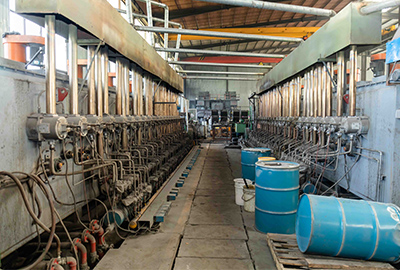Custom-Made Screws Tailored to Your Specifications for OEM Applications and Projects
Jul . 26, 2024 09:45 Back to list
Custom-Made Screws Tailored to Your Specifications for OEM Applications and Projects
The Importance of OEM Custom-Made Screws
In the rapidly evolving world of manufacturing and assembly, the significance of high-quality fastening solutions cannot be overstated. Among these solutions, OEM (Original Equipment Manufacturer) custom-made screws play a critical role. Tailored to meet specific requirements, these screws ensure reliability and performance in various applications.
Understanding OEM Custom-Made Screws
OEM custom-made screws are specially designed fasteners that are produced based on the unique specifications provided by a manufacturer. While standard screws may suffice for general applications, many industries require fasteners that cater to particular needs such as size, shape, material, and thread type. OEM screws bridge this gap, providing tailored solutions that enhance the efficiency and durability of products.
One of the primary advantages of custom-made screws is their precision. Manufacturers can specify exact dimensions, materials, and finishes, ensuring that the screws fit perfectly within the designed assembly. This level of customization reduces the risk of assembly errors, which can lead to product failures, safety issues, or increased production costs.
Industries Benefiting from Custom-Made Screws
Various industries benefit significantly from the use of OEM custom-made screws. For instance, the automotive industry often requires specialized fasteners that can withstand extreme temperatures and pressures. Custom screws designed for vehicle assemblies can improve overall vehicle safety and performance.
The aerospace sector also relies heavily on custom-made screws. Aircraft components must adhere to stringent safety standards, with fasteners that can handle vibrations and fatigue over time. By utilizing OEM screws, manufacturers can ensure that their assemblies meet regulatory requirements while maintaining structural integrity.
oem custom made screws

In the electronics industry, the demand for precision and reliability is paramount. Custom screws that are specifically designed for electronic devices can prevent damage to sensitive components and enhance the overall performance of the product. For instance, smaller, lightweight screws can be crafted for smartphones or laptops, ensuring that devices are both efficient and durable.
The Process of Creating Custom Screws
The creation of OEM custom-made screws typically involves a series of steps, starting from the initial consultation with the client. During this phase, manufacturers gather detailed specifications including dimensions, materials, and application requirements.
Once the specifications are established, the manufacturing process begins. Advanced technologies such as CNC machining, cold forming, and precision forging are often employed to produce screws that match the client's requirements. Each method has its advantages, with CNC machining offering high precision and flexibility for various designs, while cold forming is ideal for mass production of uniform parts.
After production, the screws undergo rigorous quality control measures. Testing for strength, corrosion resistance, and overall design integrity is essential to ensure that they meet the required standards before being delivered to the client.
Conclusion
In summary, OEM custom-made screws are essential components in modern manufacturing, playing a vital role in various industries from automotive to aerospace and electronics. Their ability to meet specific design requirements ensures enhanced performance, safety, and efficiency in products. By investing in custom fastening solutions, manufacturers can improve their product offerings and maintain a competitive edge in the market. As technology advances, the demand for specialized screws will continue to grow, making it imperative for businesses to consider custom solutions tailored to their unique needs.
Latest news
-
Top Wire Bolts Suppliers - Quality & Durable Fasteners
NewsAug.15,2025
-
Trusted Wire Bolts Company | Quality Fasteners Supplier
NewsAug.14,2025
-
Reliable Wire Bolts Suppliers & Manufacturers for Global Needs
NewsAug.13,2025
-
High-Quality Bolts for Lawn Mower Handle Supplier
NewsAug.12,2025
-
Leading Phosphated Drywall Screws Supplier | Bulk & Custom Orders
NewsAug.11,2025
-
Top Wire Bolts Company: Manufacturers, Exporters & Suppliers
NewsAug.10,2025
